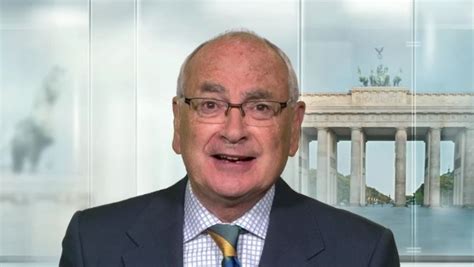A Quote by Donald Rumsfeld
You're thinking of Europe as Germany and France. I don't. I think that's old Europe.
Related Quotes
You're thinking of Europe as Germany and France. I don't. I think that's old Europe. If you look at the entire NATO Europe today, the center of gravity is shifting to the east. And there are a lot of new members. And if you just take the list of all the members of NATO and all of those who have been invited in recently -- what is it? Twenty-six, something like that? -- you're right. Germany has been a problem, and France has been a problem.
Our international role depends on a strong Europe and a strong Europe depends on France's ability to share leadership with others, including Germany. If France is economically weak and doesn't carry out reforms, it is no longer credible. Europe's position on the global stage is thus weakened. I would like to change all that. France needs a strong Germany and a strong chancellor. But Germany also needs a strong France.
Germany has become the economic heart of Europe because our leaders are weak. But Germany should never forget that France is Europe's political heart. What is happening here today foreshadows what will happen in the rest of Europe in the coming years: the great return of the nation-state, which they wanted to obliterate.
France is ready for a European revolution and it is Germany that is pulling the brakes. For a long time, it was the other way around. You don't have to agree with the details of every single one of Emmanuel Macron's suggestions, but he's right about the idea of a new foundation of Europe. Europe's Social Democrats have long demanded this. If we really want to, we can create a different, better Europe in the coming years.
The largest weight is now on Germany's shoulders. Chancellor Merkel must continue to convince people of the EU's importance; she must spearhead the effort to redefine the EU. In order to do this, Germany must become a muscular democracy. It needs to shoulder far more responsibility for the physical security of Europe, especially Eastern Europe and the Mediterranean. So far, unfortunately, Germany has taken the lead in disrespecting Europe's borders by opening its doors to more than a million refugees and migrants.
Germany will always do the minimum to preserve the euro. Doing the minimum, though, will perpetuate the situation where the debtor countries in Europe have to pay tremendous premiums to refinance their debt. The result will be a Europe in which Germany is seen as an imperial power that will not be loved and admired by the rest of Europe - but hated and resisted, because it will perceived as an oppressive power.
































